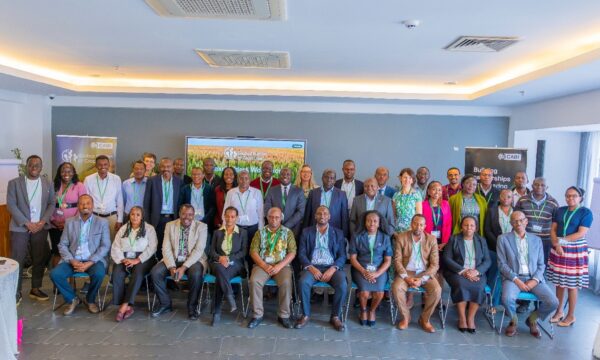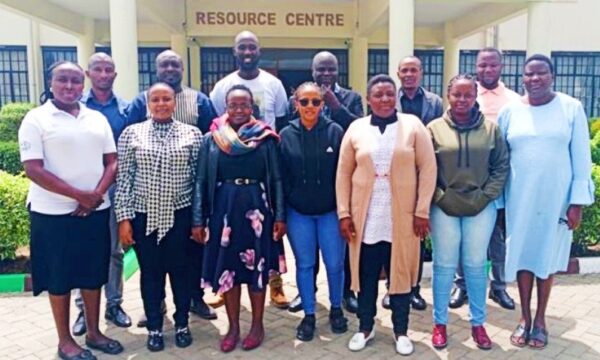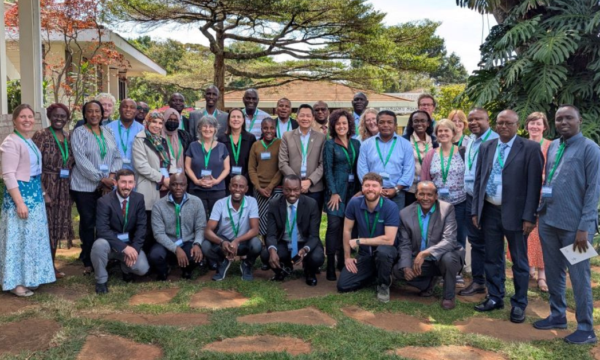
Good progress is being made on plans for a National Pesticide Residue Monitoring Program Framework (NPRMPF) for Kenya to ensure the judicious use of pesticides and safe produce reaches consumers at the end of the food value chain.
Working in partnership with a multisectoral team
CABI is working in partnership with a multisectoral team – which includes the Pest Control Products Board (PCPB), Kenya Plant Health Inspectorate Service (KEPHIS), and the Agriculture Food Authority-Horticulture crops Directorate (AFA-HCD), Ministry of Health- Kenya National Public Health Institute -Division of Food Safety, aaK-GROW, The Retail Trade Association of Kenya (RETRAK), Bureau Veritas (BVKL), Fresh Produce Consortium of Kenya (FPCK), Fresh Produce Exporters Association of Kenya (FPEAK), to pilot a NPRMPF for the country.
The pilot will help ensure that the framework provides a structured, risk-based approach to monitoring the presence of pesticide residues in food and agricultural products, ensuring they are within safe legal limits. This will aid in responding to pesticide residue deviations from Good Agricultural Practice (GAP).
The development of the NPRMF is being supported by the CABI-led global PlantwisePlus programme as part of its Pesticide Risk Reduction pathway.
Compliance with both domestic and international market requirements

The framework, once implemented, will deliver data to inform regulatory oversight and policy decisions, assure food safety, and support compliance with both domestic and international market standards.
To ensure the practicality and operational effectiveness of the NPRMF, a pilot of the NPRMF took place in the Month of May until the end of June 2025 across five agriculturally significant counties: Kirinyaga, Kiambu, Kajiado, Narok, and Taita Taveta.
Food commodities targeted during the trialling exercise of the NPRMF include tomatoes and kales, which are widely consumed and may be susceptible to pests and diseases, thus the risk of pesticide residue. French beans were sampled to represent the export market in the pilot exercise.
While officially opening the pilot report writing writeshop, Mr Fredrick Muchiri, CEO of PCPB, said, “The implementation of the framework will ensure the provision of scientific data on the status of agricultural produce in relation to pesticide residues.”
“Collaboration amongst public agencies and the private sector will ensure role complementability. This will ensure sustainability of the framework,” Mr Muchiri said.
A total of 100 produce samples were collected, proportionally distributed according to the production volume of each county, and analysed for pesticide residues as per standardized procedures.
Conducted under standardized procedures
Sampling, transport, laboratory analyses, and reporting were conducted under standardized procedures, with participation from both public and private sector experts guided by the draft framework.

The activity also showed how important it is to work closely with farmers, county officers, and other partners. Coordination amongst the participating organizations made the piloting process smooth and effective.
A comprehensive report will be prepared to inform the framework’s areas of improvement and validation. The report will be prepared as per the draft NPRMP framework, which outlines how data should be represented. Additionally, results will be shared with relevant stakeholders through organized workshops, launches, and platforms at the national, regional, or county level as per the draft framework.
The PlantwisePlus Pesticide Risk Reduction pathway is focused on raising awareness of, access to, and use of affordable integrated pest management solutions. By working closely with national and local government entities, commercial enterprises, and farmers, CABI identifies opportunities to reduce pesticide-related risks, including those related to human health and food safety and security.
Additional information
Main image: Mr Macharia from PCPB sampling kales in Kiambu county during the framework piloting exercise.
Relevant stories
‘Pesticide risk reduction can contribute to food safety – here’s how.’
1 Comment
Leave a Reply
Related News & Blogs
CABI workshop explores gendered impact of maize crop loss in Kenya
A stakeholder inception workshop recently hosted by CABI in Nairobi, Kenya, has explored how men, women, and youth are differently affected by maize crop loss, one of the most persistent challenges facing smallholder farmers across the country and beyo…
21 October 2025






Great honor to be part of this work to ensure judicious use of pesticides to safe food for our people and oversee compliance to market requirements on pesticides residues on international trade